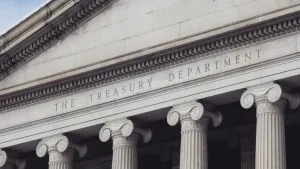
Paul Grewal, Chief Legal Officer of leading U.S. crypto exchange Coinbase (NASDAQ: COIN), revealed that the U.S. Department of the Treasury is attempting to overturn a court ruling that lifted sanctions on the crypto mixer Tornado Cash. On March 21, government officials filed a motion to challenge the prior court decision, which concluded that the Treasury had overstepped its authority by sanctioning immutable smart contracts deployed by Tornado Cash developers.
Background: Legal Rulings and Treasury Pushback
In January 2025, the U.S. District Court for the Western District of Texas overturned the sanctions against Tornado Cash and ordered a retrial. The court determined that immutable smart contracts do not constitute property owned by foreign individuals or entities, and thus cannot be targeted by economic restrictions.
Following the ruling, the Treasury removed the Tornado Cash website and ETH address from its sanctions list on March 21. However, according to Grewal, the agency’s effort to appeal the decision is legally unsound.
“After reluctantly removing Tornado Cash from the list, they now question the necessity of a final ruling. But that’s not law, and they know it. The Treasury removed the addresses but gave no assurance they won’t re-add them. That’s not enough, and the court will see that.” — Paul Grewal
Ongoing Legal Battle
The legal fight dates back to September 2022, when six Tornado Cash users, led by Ethereum developer Preston Van Loon and supported by Coinbase, filed a lawsuit against the Treasury, arguing the sanctions were unlawful. In October 2022, Coin Center, a crypto advocacy group, filed a similar complaint.
In August 2023, a federal judge initially sided with the Treasury, ruling that Tornado Cash could be sanctioned under the Office of Foreign Assets Control (OFAC) guidelines. However, this was later overturned by a three-judge appeals panel, which found the sanctions against immutable smart contracts to be illegal.
Treasury’s Response and Remaining Legal Risks
Despite being ordered to remove sanctions by March 2025, the Treasury used its 60-day window to file an appeal, seeking to reinstate them.
Meanwhile, Tornado Cash developers continue to face legal consequences:
- Roman Storm and Roman Semenov were charged in August 2023 with facilitating over $1 billion in crypto money laundering.
- Semenov remains at large and is on the FBI’s Most Wanted list.
- Storm was released on $2 million bail and is expected to stand trial in April 2025.
- Alexey Pertsev, another Tornado Cash developer, was released after a Dutch court suspended his detention pending appeal on money laundering charges.
Conclusion
While the U.S. court system has sided with Tornado Cash on the legality of sanctions, the Treasury’s continued legal efforts signal that the regulatory fight is far from over. The broader crypto industry is watching closely, as the outcome may set key precedents for how decentralized technologies are regulated in the future.